Summer 2016
Published: 05/09/2016
Letter from the Chair
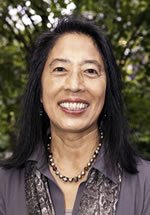 |
| Sheri Mizumori |
June is such a magical time of the year for our department! Almost 500 of our undergraduate majors graduated, and they are now transitioning into their new lives as active members, and in many cases leaders, of our society. A significant group of our graduate students just earned their Ph.D. degrees and they are taking up new leadership positions in research, industry, businesses, health care and other professional organizations. A number of our faculty have just completed our inaugural year of department-supported cross disciplinary pilot research that seeks new and innovative ways to address current issues in social, developmental, and clinical psychology.
Our 2016 Edwards Public Lectures highlighted new ways that our cutting edge research directly impacts major challenges of our local and global communities. This focus on transitions will expand further next year (2016-2017) as we celebrate our 100th Anniversary! This hallmark event provides us with an opportunity to reflect on the incredible accomplishments of our alumni and faculty, as well as to launch the next chapters of the department.
Please stay tuned for more news and announcements as our centennial events roll out! In the meantime, I hope you enjoy this newsletter, and as always, please don’t hesitate to contact me (mizumori@uw.edu) if you have questions or comments. Have a wonderful summer!
Featured Articles
Students Remember Buz Hunt
The Psychology Department is in remembrance of Professor Earl "Buz" Hunt who passed away in April 2016. Buz and his wife, Marylou, created a fellowship which supported graduate students with their independent research. So far, they have provided 14 awards to students from all areas of our program! We reached out to the students (past and current) who received this award to see just how impactful it was to their progress in the program and beyond.
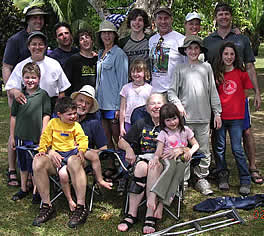 |
| Buz, Marylou, and Family |
One of our first Hunt recipients, Tami Rigterink (Developmental), used the fellowship to support her assay work which contributed to her dissertation. She analysed cortisol and alpha amylase that was collected from children exposed to domestic violence. The different levels of cortisol and alpha amylase might interact to predict trauma symptoms in these kids. Tami is currently an adjunct psychology professor at a small liberal arts college in Michigan. She remembers meeting Buz and feeling intimidated due to all his accomplishments, but he was "very warm and encouraging and down to earth." Berit Olsen Martin (Developmental) was the other recipient of the award in its inaugural year.
The next year, Kristie Fisher (Cognition & Perception) recalls that "it was always a treat to hear that Buz was going to guest speak at a colloquium or seminar class" and also experienced Buz's interest in graduate student research as an approachable and involved individual. Kristie supported herself through our graduate program as a teaching assistant, with the Hunt fellowship in hand, it allowed her the "mental space I needed to focus on writing my dissertation during a very stressful period when I was not just trying to graduate but also trying to make big career decisions." What Kristie accomplished in her research thanks to the Hunt award would ultimately have a part in leading her to her career in technology. She says, "I am so very grateful to Buz & Mary Lou Hunt for their support through the Hunt Fellowship, and I know Buz will never be forgotten by myself or my fellow graduate students who had the pleasure to know him." Caglar Akcay (Animal Behavior) was the other recipient of the Hunt award during summer 2011. He recalls Buz with a unique memory: "He was the author of the first textbook I ever read in grad school when I first started at University of Iowa (his Thoughts on Thought was the textbook of choice in the graduate cognitive class). So in a sense Buz Hunt's legacy book-ended my graduate career when I received the Hunt fellowship to finish my PhD in Animal Behavior."
In its third year, Tamara Spiewak Toub (Developmental) was selected as a Hunt fellow. She was able to spend her award quarter completing data collection, analyses, writing her dissertation, and successfully defending. "My research explored the relation between pretense and executive function skills, because many preschoolers struggle with executive function (e.g., acting based on careful thought rather than on impulse), and pretending is a promising strategy for helping them to control themselves in challenging situations." Tamara completed a postdoctoral position with the UW's I-LABS and is now at Temple University continuing her research with children and the benefits of pretending and forms of play to their development. Andrada Neacsiu (Adult Clinical) was the other recipient of the Hunt during summer 2012 and is currently an Assistant Professor in Psychiatry and Behavioral Sciences at Duke University.
In 2013, the Hunt recipients were Tom Soare (Animal Behavior) and J. Oliver Siy (Social Psychology & Personality). They both recognize the Hunt Fellowship support as integral to the completion of their graduate studies in a timely manner and to their careers in research. Tom was finishing his analyses and dissertation, "a population genetics study of the effect of landscape on dispersal behavior of army ants." He is currently at the Psychiatric and Neurodevelopmental Genetics Unit of the Center for Human Genetic Research at Massachusetts General Hospital. Oliver is working in the tech industry as a postdoctoral researcher.
Amanda Gilmore (Adult Clinical) and Yong Sang Jo (Behavioral Neuroscience) completed their degrees in 2014 with support from Hunt Fellowships. Amanda completed an APA-accredited internship at the VA in Puget Sound the following year, as her final requirement from our clinical program. Yong Sang assumed a postdoctoral position as a researcher in the UW Pharmacology Department to study the neurobiology of emotions and learning.
In 2015 both Hunt fellows were students in clinical psychology. Alissa Jerud (Adult Clinical with Lori Zoellner) and Stephanie Thompson (Child Clinical with Liliana Lengua) used the funding period to make major progress on their dissertation research and writing prior to assuming their required clinical internship positions. Both will be awarded PhDs in summer, 2016. Stephanie’s work examines the effect of prenatal stress on adjustment of preschool children, while Alissa’s research focuses on the effect of living with a parent with PTSD on fear learning of children. Both students have accepted postdoctoral positions and are incredibly grateful for the role the Hunt Fellowship played in helping them achieve their goals!
The current Hunt Fellows are Blake Pellman (Behavioral Neuroscience with Jeansok Kim) and Laura Brady (Social Psychology & Personality with Yuichi Shoda). In continuing the theme of Buz's great support for graduate students and their research, along with lifelong learning, Blake shares, "I once attended a talk he gave to the department during my first year in the program, and it was clear he cared deeply for psychological science and education. I instantly formed a great respect for the man." These students will be graduating in spring and summer 2016 thanks to the support from a wonderful endowment established by a memorable member of our department.
Our deepest gratitude to Buz and Marylou for all they have done and will do, in supporting independent Psychology graduate student research. We all thank you.
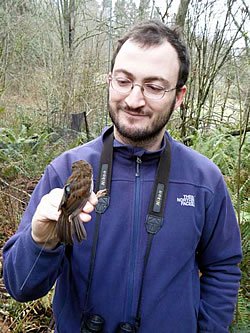 |
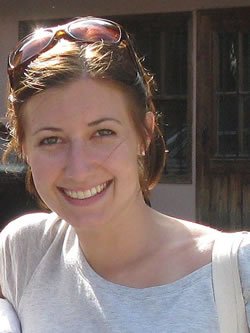 |
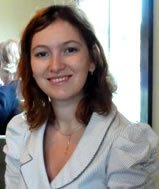 |
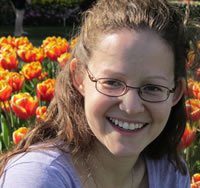 |
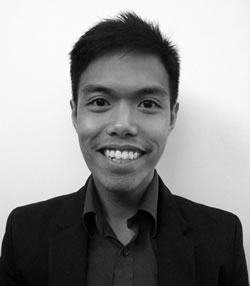 |
| L-R: Caglar Akcay, Kristie Fisher, Andrada Neacsiu, Tamara Spiewak Toub, J. Oliver Siy | ||||
 |
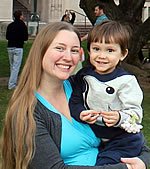 |
 |
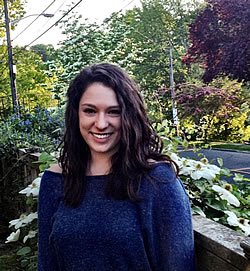 |
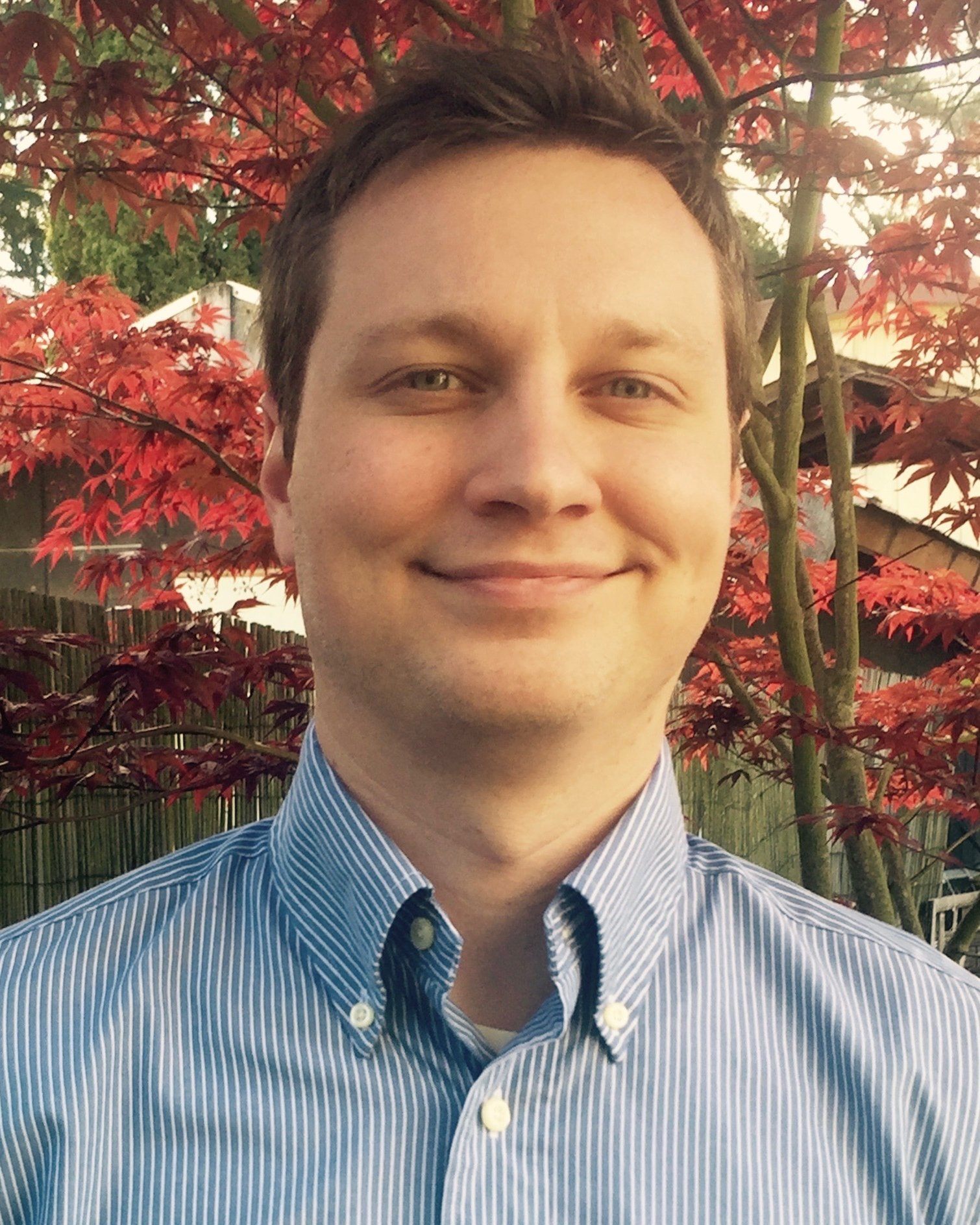 |
|
L-R: Tom Soare, Amanda Gilmore, Yong Sang Jo, Laura Brady, Blake Pellman. Not pictured: Alissa Jerud, Berit Olsen Martin, Tami Rigterink, Stephanie Thompson |
||||
Supplemental Reading:
- Earl Hunt Graduate Fellowship Fund provides supports to graduate students conducting independent research (individual research spotlight articles: year 1, year 2, year 3, year 4, year 5, year 6 was included as part of Graduate Accomplishments).
- Support UW Psychology Graduate Students by donating to the Earl Hunt Graduate Fellowship Fund.
Celebrating our Graduating Seniors!
With a record 500 students earning their Bachelors of Arts in Psychology over the course of this year there are many things -- and many people -- to celebrate. On June 6, many of these graduating seniors, along with their proud families and friends, filled the HUB Ballrooms as we celebrated their accomplishments at the Psychology Graduation Celebration.
 |
 |
| Alicia Mendez Sawers | Polo DeCano |
In an effort to make this event an even more special and person experience, a number of changes were made to this year's program. Chief among them was the addition of keynote speeches by one of our graduating seniors and by one of our distinguished alumni. Our first ever student speaker was Alicia Mendez Sawers. A Psychology Honors student and McNair Scholar, Alicia also participated as a peer mentor for incoming transfer students. This summer, Alicia heads to the East Coast to begin an MSW/Ph.D. program at Rutgers University. Our alumni speaker, Policarpio (Polo) DeCano, earned a Bachelor of Arts in Psychology in 2002. A repeat Husky, Polo is now poised to complete a Ph.D. in School Psychology from the UW College of Education.
Department Chair Sheri Mizumori presided over an evening that both highlighted the tremendous accomplishments of a number of individuals and celebrated the achievements of all of our graduates. Awarding of honor cords to our graduating Honors students and the presentation of the Guthrie Prize awards were featured. As always, a highlight of the evening was the procession of the graduates. Professor Jaime Diaz and Psychology Lecturer Nicole McNichols read each student's name as they crossed the stage to the cheers of the crowd. We wish all the best to our newest alumni and look forward to keeping in touch and learning about their accomplishments yet to come!
Faculty Interdisciplinary Research Pilot Awards
The Psychology Department held its first funding competition for Faculty Interdisciplinary Research Pilot Awards (FIRPA) last spring. These projects aimed to generate exciting research questions that connect different sub-areas of the department. The first round of recipients represented a variety of departmental research areas, including child and adult clinical psychology, behavioral neuroscience, developmental psychology, and social psychology, and asked questions at the nexus of trauma, memory, autism, culture, and school violence. The three winning projects are featured below.
 |
.jpg) |
| Wendy Stone | Jessica Sommerville |
Drs. Wendy Stone (Child Clinical) and Jessica Somerville (Developmental) received funding for The Social Attention Study, which is exploring whether differences in social attention and responding are evident in the first year of life among infants who are at elevated risk for a later Autism Spectrum Disorder (ASD) diagnosis. Mechanisms of social development are being explored, by asking whether parental characteristics of empathy, prosociality, and subclinical features of ASD are related to early individual differences in social attention and responding. The longitudinal and cross-sectional samples comprise infants at low-risk for ASD and those at high-risk. Infants at high-risk are those who have an older sibling with an ASD diagnosis, as they have a one in five chance of receiving a later diagnosis, as compared to a prevalence rate of one in 68 in the general population. The project will provide greater insight into early social development by determining how infants’ tendencies to respond to various social and emotional stimuli might be related to each other, and what patterns of interrelations emerge throughout the first year of life.
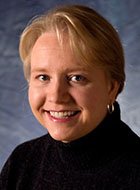 |
.jpg) |
| Lori Zoellner | Jeansok Kim |
Professors Lori Zoellner (Adult Clinical), Jeansok Kim (Behavioral Neuroscience), and Libby Marks (doctoral student Adult Clinical), received funding for a project examining how to intervene with the fear-learning process to help reduce intrusive re-experiencing (i.e., cued memories, nightmares, out-of-the-blue intrusions), a source of vulnerability for those with depression and posttraumatic stress disorder, PTSD). They used a distressing film paradigm (fear acquisition; clip from ‘The Last King of Scotland') to induce intrusive memories as an analogue to a real-life traumatic event and later re-exposed participants to a brief neutral "cue" image of the film within what is known as the "reconsolidation window." This window is thought to make the memory more vulnerable to modification during a subsequent period of repeated presentation of the film (fear extinction). Markers of stress and synaptic plasticity were also collected, including salivary cortisol, alpha-amylase, and heart rate.
Those who received the neutral cue within the reconsolidation window reported fewer intrusions 48 hours later than those who received a more distressing, negative cue, arguing that the valence of the cue may be important for facilitating later intrusion reduction. However, those receiving the neutral cue did not differ in later intrusions from those who received an out of the window cue or a scrambled cue. This suggests negative within-window cues, in particular, may inhibit fear reduction and maintain intrusive symptoms. Next steps include examining individual trajectories of stress responding during extinction, including analysis of heart rate data, as a possible mediator of intrusions. Given the exciting potential application of reconsolidation to enhance therapies for anxiety and traumatic stress disorders, this work of honing boundary conditions of retrieval cues specifically and reconsolidation more broadly are critical.
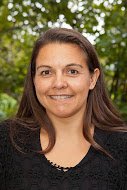 |
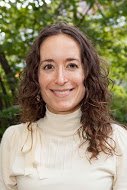 |
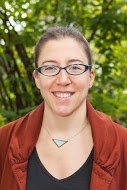 |
| Stephanie Fryberg | Katie McLaughlin | Kristina Olson |
Drs. Stephanie Fryberg (Social Psychology), Katie McLaughlin (Child Clinical), and Kristina Olson (Developmental Psychology) began a project examining how people respond to trauma and how these responses differ depending on a person’s cultural background and closeness to the traumatic event. They investigated coping behavior and socio-emotional outcomes following a school shooting in a local school district that serves both a local tribal community and a neighboring city. They found that the impact of the shooting was felt widely across the school district, as opposed to being limited to the school in which the shooting occurred. In particular, schools with large Native populations (who therefore have tribal ties with some of the victims of the shooting and the shooter), reported negative student behaviors (such as withdrawal, fear, outbursts, aggression, etc.), at rates indistinguishable from the location of the school shooting. Individuals within the former schools reported significant adjustments to their interactions with students, parents, colleagues, and family members in order to provide support to those around them and garner support for themselves. In addition to behavioral indicators of maladjustment, people also reported heightened negative emotions, feelings of avoidance of thinking about the event, and catastrophizing. Although the data suggest that individuals are improving as time has moved from the event, there is also evidence of long-term negative effects on community relations. In particular, immediately following the shooting, people reported that the tribal community and the neighboring city were brought closer together by the event; however, this immediate unity is breaking down, and people are reporting a growing divide between the two communities.
Department of Psychology 100th Anniversary Logo Design Contest
Next year, marks the Department of Psychology’s 100th Anniversary. The UW Department of Psychology needs a new logo for our 100th Anniversary! We would like to mark this celebration with a new logo that reflects the work, research, and education of our Department.
We are putting out the call to our current and former students, faculty, and staff to help us celebrate by submitting a design that commemorates this exciting anniversary. Please see the criteria, rules, and prizes below. We look forward to announcing the new logo in September as we start the year of celebrations!
Selection Criteria
The Department of Psychology will evaluate all entries based on the following criteria (though other criteria may be considered):
• Relevance - the entry should be consistent with the Department of Psychology’s goals and values;
• Originality - the entry should be creative, innovative, and the original work of the artist entering the contest; and
• Aesthetic Quality - the entry should command attention, display visual balance and color coordination, and contain elements which work together for a unified and appealing design.
We are looking for a design that:
• Captures the excitement and rigor of our global learning community;
• Reflects our core values of innovation, discovery, societal impact, 21st century learning, and community
• Uses "UW Department of Psychology” or “UW Psychology”
• Works within the University of Washington brand.
Who are we?
The Psychology Department is one of the largest in the College of Arts and Sciences at the University of Washington. Our internationally recognized faculty members follow a rich tradition of pioneering fundamental discoveries about the causes of behavior from biological, clinical, cognitive, developmental, and social perspectives.
UW Psychology Department undergraduate and graduate students learn to think critically and creatively about psychological issues through innovative classroom instruction. We also strive to provide our students with a rich variety of research and internship opportunities.
It is an exciting time in the UW Psychology Department. As we enter our 100th year, we look forward to a bright future that incorporates new interdisciplinary visions that enhance our research and instructional potential as well as extend our effort to disseminate new knowledge, ideas, and practice to the public locally and abroad.
Prizes:
The winner will receive a $300 reward in the form of gift cards. If the winning design is produced by more than one artist, the Department of Psychology will award one prize of $300 (dividing the prize equally will be the responsibility of the artist who submitted the design).
The Department of Psychology reserves the right not to select a winner, if in its sole discretion, no suitable entries are received.
Official Rules:
The following are the official rules for the UW Department of Psychology Logo Contest:
• Individuals may submit no more than three entries. Each entry requires a separate Entry Form;
• All submitted work must be the original work of the entrant;
• Each entry must be credited to a single individual. The Department of Psychology Logo Contest does not accept entries from pairs or teams;
• We would like entries to come from current and former Department of Psychology students, faculty, and staff;
• All entries will become the property of the Department of Psychology;
• By submitting an entry, the entrant agrees that any and all intellectual property rights in the logo design are deemed assigned to University of Washington’s Department of Psychology;
• The winning logo will be chosen by a panel of judges appointed at the Department of Psychology's discretion. Their decision will be final;
• The Department of Psychology reserves the right not to select a winner if no entries satisfy judging criteria;
• All entries must be submitted as scalable vectors, and must be adaptable to change, including size alterations and color/grayscale shifts; and
• Contestants are encouraged to refer to University of Washington’s brand guidelines when developing a logo: http://www.washington.edu/brand/graphic-elements/logo-guidelines/.
How to Enter:
To enter the Department of Psychology 100th Anniversary Logo Design Contest, eligible participants must:
Complete the Official Entry Form on the next page;
• Create a logo design in JPG, PDF, or PSD formats;
• If you are chosen as a winner, you MUST be able to provide a high resolution vector file (e.g., in Adobe Illustrator, Photoshop, or InDesign); and
• Submit your completed Entry Form and logo design to darnim@uw.edu by 11:59 PM on July 1, 2016.
Click below for the entry form.
Department of Psychology 100th Anniversary Logo Design Contest